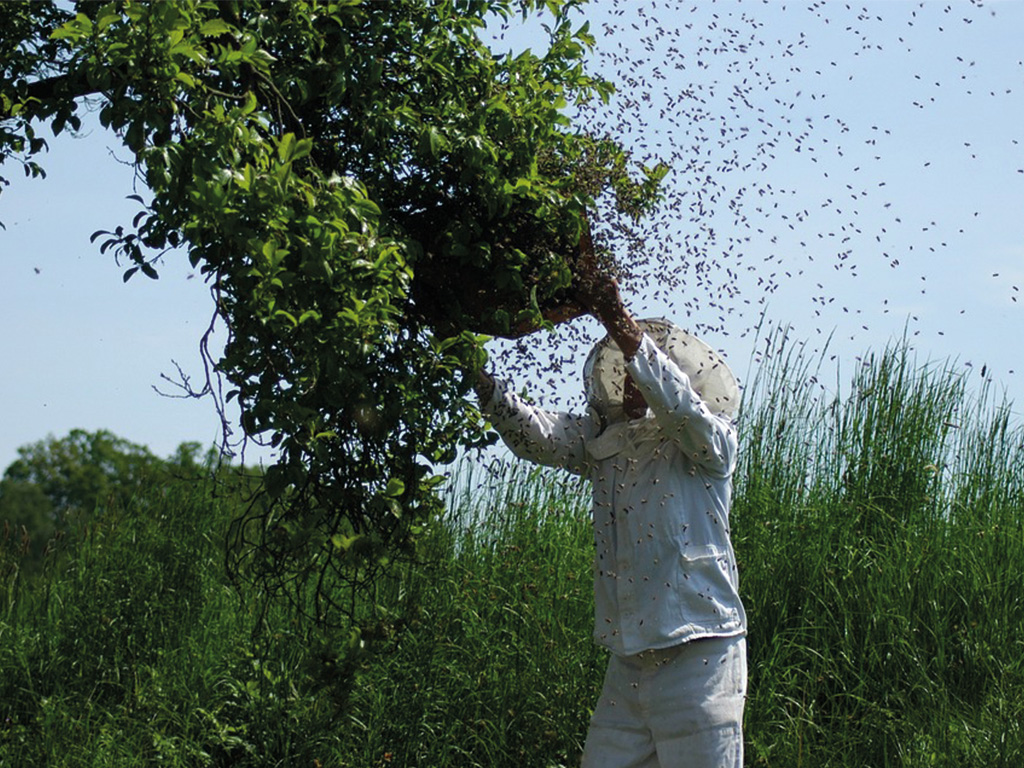
Ways of preventing a swarm
Swarming is a bee colony’s method of reproduction. It is part of the bees’ natural instinct to enlarge the size of its population and to explore new feeding grounds. If a colony is healthy and prosperous, it usually breeds a new queen bee sometime during the spring. Before the new queen is fully developed and ready to take over the colony, the old queen leaves the hive with more than half of the working bees. They then find a new place to live. This is what is called the swarm. Here you can watch impressive footage of a swarm in action [1].
For the beekeeper a swarm has a bunch of negative side effects. Firstly, at least half of the swarm is gone and thus the colony will produce much less honey. Secondly, bees that have swarmed out normally cannot survive for more than one winter as the aggressive farming methods of today don’t leave the bees enough space and food.
Thus, most beekeepers try to prevent their colonies from swarming. There are several ways of doing so [2]. It is crucial to check the hive regularly during the spring in order to know whether the colony is preparing a swarm. Indications for this are fully stacked honeycombs and brooding cells for a new queen bee located on the edge of the comb. One way of preventing a swarm is by destroying these enlarged brooding cells.
Another predictor for a possible upcoming swarm are the so called drones. Drones are being created in preparation to mate with a new queen. When the drone combs are fully developed, the colony is usually preparing to swarm. So, one method of monitoring the swarm-willingness of a bee population is by surveying the drone combs with a camera. Unfortunately, there are no feasible solutions on the market available yet.
If the beekeeper is lucky, s/he can witness where the swarm is flying to and catch them by offering them a fresh hive. Most of the time however, the beekeeper doesn’t know when the swarm begins in time and thus misses this opportunity. It would be great if some sort of app could be developed, which monitors the activity at the hive and sends out an immediate alarm to the beekeeper once the swarm is beginning. One indication that the swarming is about to begin is an immense increase of temperature inside the hive.
A group of scientists in Australia was able to attach tiny GPS tracking devices to the back of bees in the past [3]. Perhaps the Beehyve swarm intelligence can come up with a method of utilizing modern automation technology to create such miniature GPS tracking devices for the public. That way beekeepers would be able to trace their swarmed-out colony and recapture it.
Swarm prevention is definitely one of the most exciting fields of activity for beekeepers. And it is up to each beekeeper to decide how to deal with this challenge. Maybe our open Beehyve network will find ways to support the beekeepers in preventing the swarms or how to retrace the swarmed-out bees.




